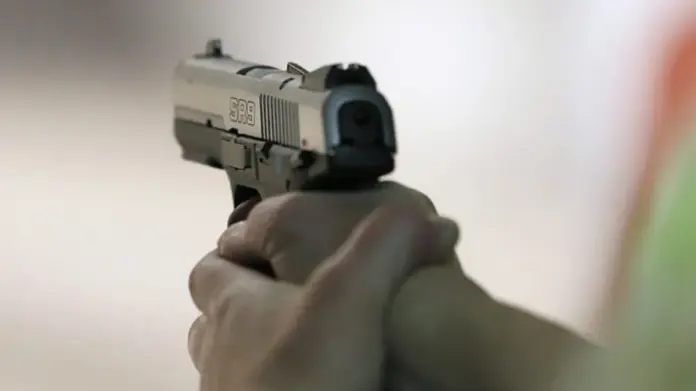Moldovan lawmakers are reviewing significant amendments to the country’s firearms legislation, including the introduction of the European Firearms Passport, tighter state controls, and new rules for civilian gun owners. The proposed changes were presented by representatives of the Ministry of Internal Affairs (MAI) during the November 26, 2025 meeting of the Parliamentary Committee on National Security, Defense and Public Order.
Victor Grosu, State Secretary at the MAI, said the reform is driven by two main factors:
“The obligation to transpose the EU Directive on the control of the acquisition and possession of firearms, as required under the Association Agreement and the Chapter 24 screening on Justice, Freedom and Security, and the need to strengthen state control in response to the rising number of incidents involving civilian firearms.”
Alignment with EU standards
One of the core amendments updates key terminology to reflect European legislation. Grosu noted that definitions of firearm, essential component, and ammunition have been revised, while new terms such as theatrical firearms, acoustic firearms, prior authorization, specially equipped premises, and the European Firearms Passport have been added.
The introduction of the European Firearms Passport will allow Moldovan firearm holders to transport weapons across EU countries based on the appropriate authorizations. Grosu stressed that this is “a technical condition in the pre-accession process.”
Stricter oversight and new restrictions
The draft law proposes enhanced supervision of civilian firearms and ammunition. Dealers would face tighter reporting obligations, stricter traceability standards, and a complete ban on online sales of firearms, essential components, and ammunition. Weapon-marking standards would also be updated.
Rules for non-lethal weapons are set to become more restrictive. According to the draft, access to these weapons will be more tightly regulated, and several types — including acoustic, theatrical, and tranquilizer-equipped weapons — will be phased out of civilian circulation by 2030.
New obligations for gun owners
The bill introduces several requirements for current firearm holders:
- Permit renewal every three years, accompanied by a mandatory qualification and safety course.
- Suspended permits will no longer count toward the renewal period.
- Firearm seizure mechanisms will apply when an owner refuses to comply with legal requirements.
Denis Meleca of the General Police Inspectorate explained that the draft also eliminates the current obligation for relatives to hand over a firearm after the owner’s death. Instead, the police will proactively contact legal heirs using information available through national databases.
Meleca said the updated training requirement is justified by the high number of firearm-related incidents recorded in recent years.
Digitalization and institutional clarifications
MP Renato Usatii raised the issue of digitalizing training certificates to avoid manual checks. Meleca responded that an MAI–Ministry of Education working group is already working on integrating training data directly into the firearms information system.
The committee also discussed clarifying the authority of the State Protection and Guard Service (SPPS). Meleca explained that the adjustments ensure the law reflects the SPPS’s legal mandate, particularly regarding import permits for firearms used to protect official delegations — responsibilities that do not fall under the MAI.
Committee approval
Following the discussions, the committee unanimously approved the draft law, which will now move forward in the legislative process.


